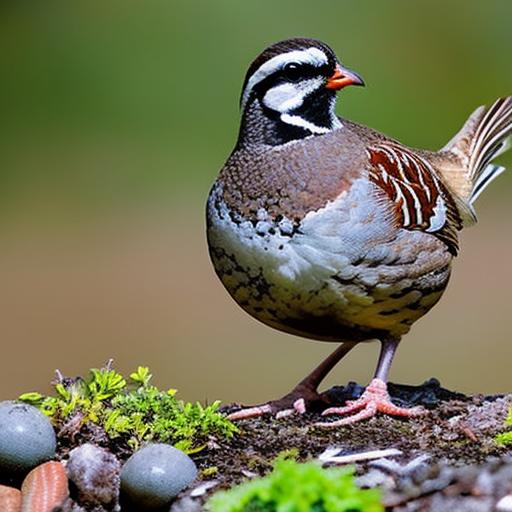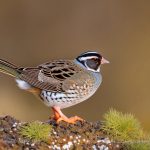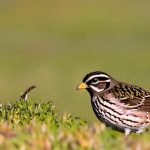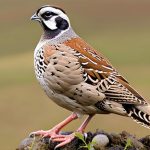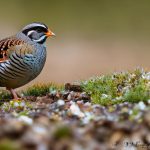Quail keeping in the garden can be a rewarding and enjoyable experience for both novice and experienced gardeners. Quail are small, ground-dwelling birds that are known for their gentle nature and beautiful plumage. They are relatively easy to care for and can be a great addition to any garden ecosystem. Whether you are interested in raising quail for their eggs, meat, or simply for their charming presence, there are a few key considerations to keep in mind when incorporating quail into your garden. From choosing the right species to creating a suitable habitat and providing proper care, quail keeping requires thoughtful planning and attention to detail. With the right knowledge and preparation, you can create a thriving environment for quail in your garden and enjoy the many benefits they have to offer.
Quail keeping in the garden is not only a practical endeavor but also a way to connect with nature and promote biodiversity. By providing a safe and nurturing habitat for quail, you can contribute to the overall health and balance of your garden ecosystem. Additionally, observing and caring for these charming birds can bring a sense of joy and fulfillment to your gardening experience. In this article, we will explore the various aspects of quail keeping in the garden, including choosing the right species, creating a suitable habitat, providing proper care, and integrating quail into your garden ecosystem. Whether you are a seasoned gardener or just starting out, there is much to learn and appreciate about the world of quail keeping in the garden.
Key Takeaways
- Quail keeping in the garden is a rewarding and enjoyable hobby that can provide fresh eggs and pest control.
- When choosing the right quail species for your garden, consider factors such as climate, space, and egg production.
- Creating a suitable habitat for quail in the garden involves providing shelter, nesting areas, and protection from predators.
- Feeding and watering quail in the garden requires a balanced diet of commercial feed, fresh greens, and access to clean water.
- Providing enrichment and entertainment for quail in the garden can include dust baths, perches, and foraging opportunities.
Choosing the Right Quail Species for Your Garden
When it comes to quail keeping in the garden, choosing the right species is an important first step. There are several species of quail that are commonly kept in domestic settings, each with its own unique characteristics and requirements. Some popular species for garden quail keeping include the Coturnix quail, Bobwhite quail, and California quail. Each species has its own specific needs in terms of space, diet, and environmental conditions, so it’s important to research and consider which species is best suited for your garden.
Coturnix quail, also known as Japanese quail, are one of the most commonly kept species for backyard quail keeping. They are known for their small size, gentle disposition, and prolific egg-laying capabilities. Coturnix quail are relatively easy to care for and can thrive in a variety of garden settings. Bobwhite quail, on the other hand, are native to North America and are popular for their distinctive call and striking plumage. They require more space than Coturnix quail and are known for their strong flying abilities. California quail are another popular choice for garden quail keeping, known for their sociable nature and striking appearance. They require a larger outdoor space with plenty of vegetation for cover and foraging. When choosing the right quail species for your garden, it’s important to consider factors such as available space, climate, and your specific goals for quail keeping.
Creating a Suitable Habitat for Quail in the Garden
Creating a suitable habitat for quail in the garden is essential for their health and well-being. Quail require a safe and secure environment that provides ample space for foraging, dust bathing, and nesting. When designing a habitat for quail in the garden, it’s important to consider factors such as shelter, vegetation, and protection from predators. Providing natural cover such as shrubs, tall grasses, and brush piles can create a sense of security for quail and encourage natural behaviors such as nesting and foraging.
In addition to natural cover, providing suitable shelter such as wooden shelters or nesting boxes can offer protection from the elements and predators. Quail also require access to clean water for drinking and bathing, so it’s important to provide shallow dishes or containers that are easily accessible to them. When designing a habitat for quail in the garden, it’s important to consider the specific needs of the chosen species and create an environment that closely mimics their natural habitat. By providing a suitable habitat for quail in the garden, you can create a thriving environment that promotes their natural behaviors and overall well-being.
Feeding and Watering Quail in the Garden
Feeding and watering quail in the garden is an important aspect of their care and requires careful attention to their dietary needs. Quail are omnivorous birds that require a balanced diet of seeds, grains, insects, and green vegetation. In a garden setting, quail can forage for insects, seeds, and vegetation, but supplemental feeding may be necessary to ensure they receive adequate nutrition. Providing a commercial game bird feed or a mixture of seeds such as millet, sunflower seeds, and cracked corn can help meet their dietary requirements.
In addition to feeding, providing access to clean water is essential for quail in the garden. Quail require water for drinking as well as bathing to maintain healthy plumage and skin condition. Shallow dishes or containers filled with clean water should be placed in various locations throughout the garden to ensure easy access for quail. It’s important to regularly clean and refill water containers to prevent contamination and ensure a fresh supply of water at all times. By paying close attention to their feeding and watering needs, you can help ensure that quail in the garden receive the nutrition they need to thrive.
Providing Enrichment and Entertainment for Quail in the Garden
Providing enrichment and entertainment for quail in the garden is an important aspect of their care that can contribute to their overall well-being. Quail are active birds that enjoy exploring their environment, foraging for food, and engaging in natural behaviors such as dust bathing and socializing. In a garden setting, there are many opportunities to provide enrichment for quail through the use of natural materials, structures, and interactive elements.
Creating areas with loose soil or sand can provide opportunities for quail to engage in dust bathing, which helps them maintain healthy plumage and skin condition. Additionally, providing natural perches or branches can offer opportunities for roosting and exploration. Planting native vegetation such as grasses, herbs, and shrubs can provide cover and food sources for quail while also creating a more naturalistic environment. Additionally, placing interactive elements such as hanging treats or puzzle feeders can provide mental stimulation and encourage natural foraging behaviors.
By providing enrichment and entertainment for quail in the garden, you can help promote their physical and mental well-being while also creating a more dynamic and engaging environment for them to thrive.
Health and Safety Considerations for Quail in the Garden
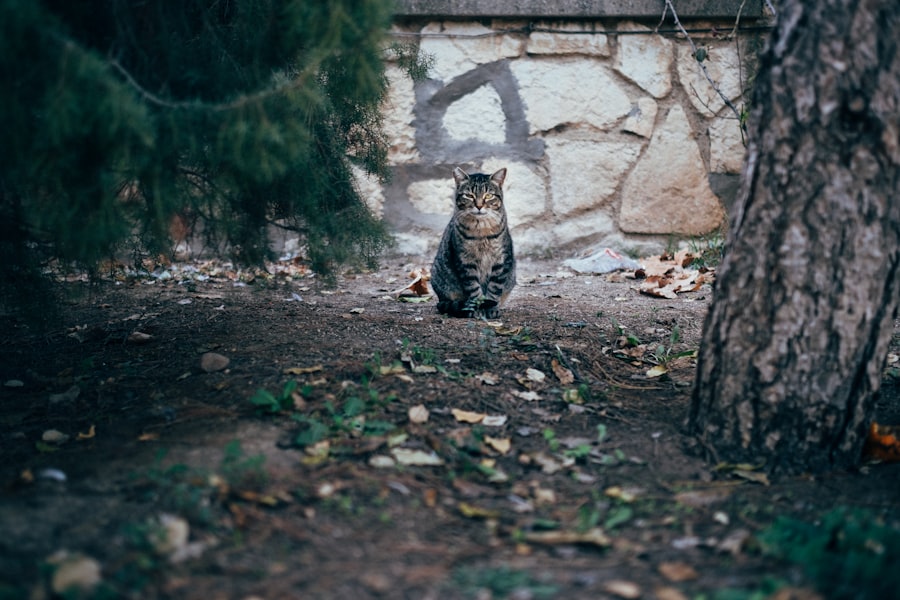
Health and safety considerations are essential aspects of caring for quail in the garden. Quail are relatively hardy birds but can be susceptible to certain health issues such as parasites, respiratory infections, and injuries. Regular observation and monitoring of quail behavior and appearance can help identify any potential health concerns early on.
In addition to monitoring their health, it’s important to create a safe environment for quail in the garden by minimizing potential hazards such as toxic plants, sharp objects, or predators. Fencing or netting can be used to create secure enclosures that protect quail from predators such as cats, dogs, or birds of prey. Additionally, regular cleaning of their habitat and providing access to clean water can help prevent disease and maintain overall health.
It’s also important to consider potential stressors such as loud noises or sudden disturbances that can impact the well-being of quail. By creating a safe and nurturing environment that promotes their natural behaviors while minimizing potential risks, you can help ensure the health and safety of quail in the garden.
Tips for Integrating Quail into Your Garden Ecosystem
Integrating quail into your garden ecosystem can have many benefits for both the birds and your garden environment as a whole. Quail are natural foragers that can help control insect populations while also contributing to soil health through their scratching and dust bathing behaviors. By creating a suitable habitat that provides access to natural food sources such as insects, seeds, and vegetation, you can encourage quail to become active participants in your garden ecosystem.
In addition to their pest control abilities, quail can also contribute to the overall biodiversity of your garden by attracting other wildlife such as songbirds and beneficial insects. Their presence can create a more dynamic and balanced ecosystem that supports a wide range of plant and animal species.
When integrating quail into your garden ecosystem, it’s important to consider factors such as habitat design, food sources, and potential interactions with other wildlife. Providing suitable cover such as shrubs or tall grasses can create safe spaces for quail while also attracting other wildlife species. Additionally, planting native vegetation that provides food sources such as seeds or berries can help support a diverse range of wildlife while also providing natural enrichment for quail.
By taking a thoughtful approach to integrating quail into your garden ecosystem, you can create a thriving environment that supports the health and well-being of both the birds and your garden as a whole.
In conclusion, quail keeping in the garden offers many opportunities to connect with nature while promoting biodiversity and sustainability. By choosing the right species, creating a suitable habitat, providing proper care, and integrating them into your garden ecosystem, you can create a thriving environment that supports the health and well-being of both the birds and your garden as a whole. With careful planning and attention to detail, you can enjoy the many benefits that quail have to offer while creating a more dynamic and engaging gardening experience. Whether you are interested in raising quail for their eggs or simply enjoying their charming presence in your garden, there is much to learn and appreciate about the world of quail keeping in the garden.
Looking to add some feathered friends to your garden? Keeping quail can be a rewarding and enjoyable experience. These small birds are not only great for pest control, but they also provide fresh eggs for your family. If you’re interested in expanding your poultry knowledge, you might want to check out this article on how many eggs geese lay. It’s always fascinating to learn about the different aspects of poultry keeping and breeding.
FAQs
What are the benefits of keeping quail in the garden?
Quail can help control pests in the garden by eating insects and small rodents. Their droppings also act as a natural fertilizer for the soil.
What do quail need in terms of housing and space in the garden?
Quail need a secure and predator-proof housing, such as a coop or aviary, with access to a protected outdoor area. They require at least 1 square foot of space per bird in the coop and 2-3 square feet per bird in the outdoor area.
What do quail eat and how can they be fed in the garden?
Quail eat a diet of seeds, grains, and insects. They can be fed commercial quail feed, as well as kitchen scraps and forage from the garden.
What are the considerations for keeping quail in a garden with other pets or wildlife?
Quail should be kept separate from other pets, such as cats and dogs, to prevent any potential harm. Additionally, precautions should be taken to protect quail from predators, such as raccoons, foxes, and birds of prey.
Are there any legal considerations for keeping quail in the garden?
It is important to check local regulations and zoning laws before keeping quail in the garden, as some areas may have restrictions on keeping poultry. Permits or licenses may be required in certain locations.
Meet Walter, the feathered-friend fanatic of Florida! Nestled in the sunshine state, Walter struts through life with his feathered companions, clucking his way to happiness. With a coop that’s fancier than a five-star hotel, he’s the Don Juan of the chicken world. When he’s not teaching his hens to do the cha-cha, you’ll find him in a heated debate with his prized rooster, Sir Clucks-a-Lot. Walter’s poultry passion is no yolk; he’s the sunny-side-up guy you never knew you needed in your flock of friends!

